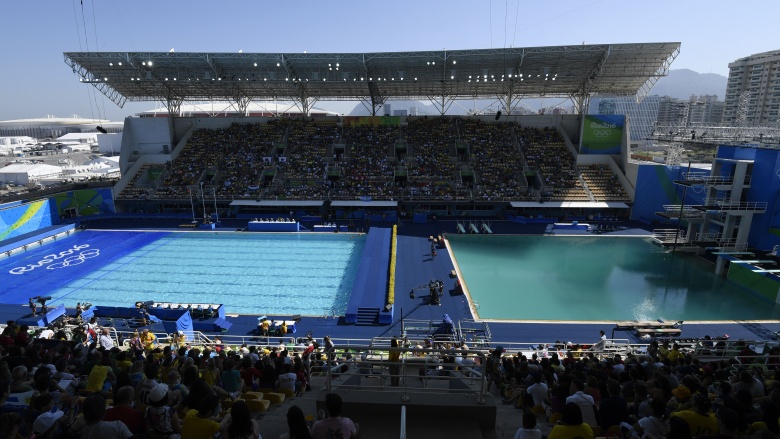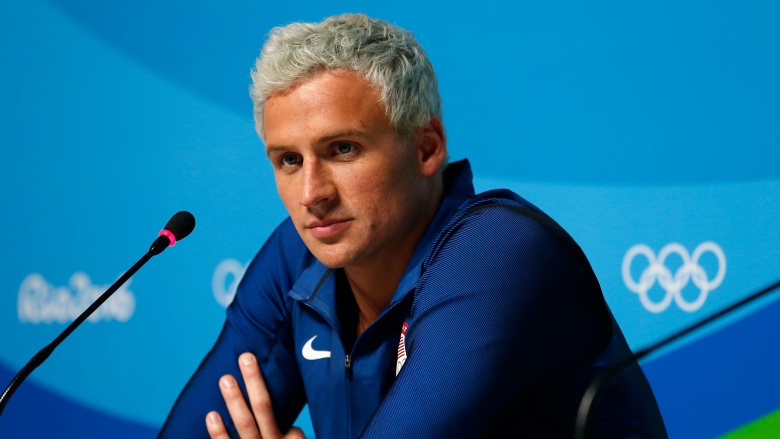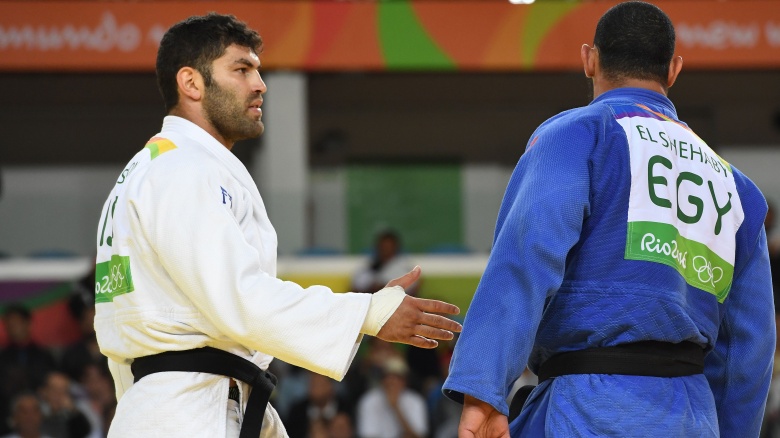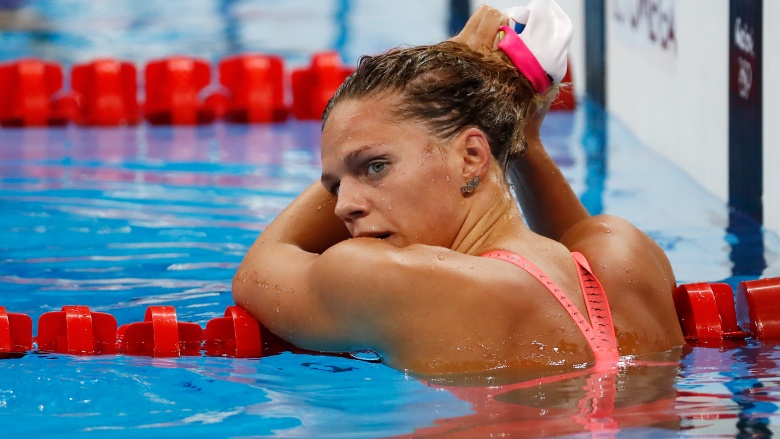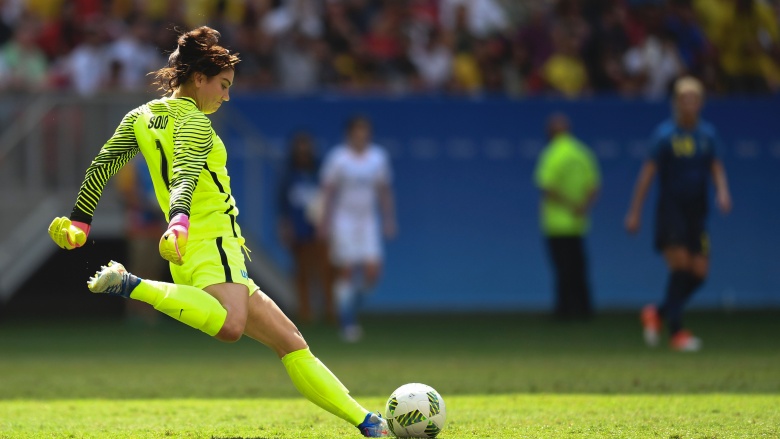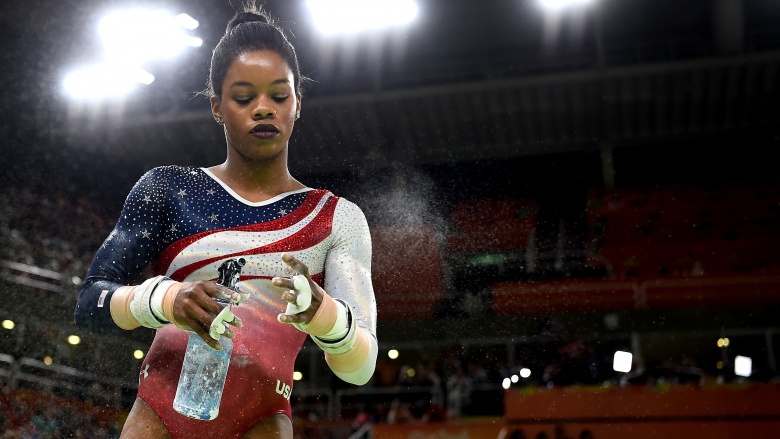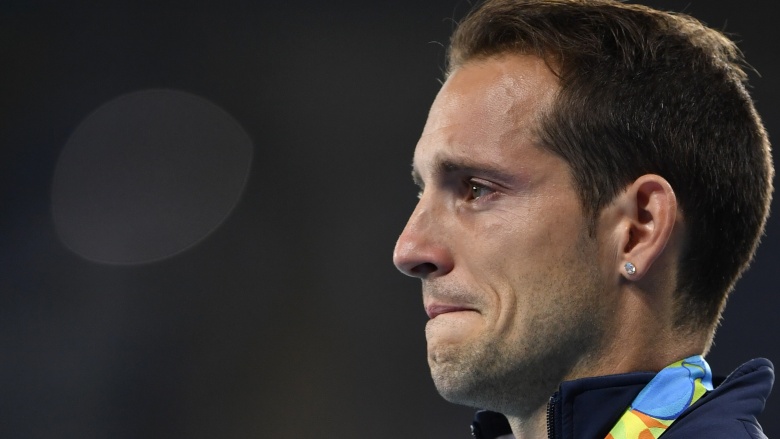Shadiest Moments Of The Rio Olympics
From the moment the International Olympic Committee announced Rio as the location of the 2016 Summer Olympics, the internet was positively abuzz with both excitement and criticism. Rio would be the first South American city to host a summer Olympics, and Brazil the first Portuguese-speaking country to host any Olympic games. On the other hand, critics worried about the suitability of the location. The games would be the first summer Olympics held entirely during the host country's winter, and other concerns were raised about the instability of Brazil's government, the dangers of the Zika virus, and extreme pollution in Guanabara Bay—the location of many of the paddling and sailing events. While not all of those concerns were justified in the end, the Rio Olympics did manage to serve up some spectacularly shady moments. Let's take a look at some of them.
The diving pool color fiasco
Fans of the diving events sounded the alarm when the normally blue sparkling water turned a murky green a few days after events began at the aquatic center. Despite officials claiming they had it under control, the problem worsened to the point the entire building had to be closed because it began to smell of rotten eggs. After blaming it on algae, temperature fluctuations, and an accidental hydrogen peroxide spill, organizers admitted the real reason was much more embarrassing—the aquatic center ran out of the chemicals needed to treat the pool properly. Even the water outdoors wasn't safe—an investigation by the Associated Press revealed Rio's lagoons were so contaminated that athletes who were inadvertently dunked during their events (like the Serbian rowers who capsized) were at serious risk of contracting infections.
Ryan Lochte's little white lie
In perhaps the largest American Olympic scandal since Tonya Harding, U.S. swimmer Ryan Lochte concocted a story about how he and three other U.S. swimmers were robbed at gunpoint during a late-night taxi ride. Soon, video emerged showing the quartet returning to the Olympic Village, still in possession of their watches and cell phones, and appearing relaxed and jovial—not at all like four people who'd just been victims of an armed robbery. An inquest by police led to even more surveillance video, this time from a gas station in Rio, showing the group drunkenly vandalizing the convenience store, then being detained by security guards and ordered to pay for the damage. The police investigation intensified and officials removed two of the swimmers from their plane back to the United States, confiscating their passports until they could be questioned. Finally it emerged that Lochte's entire story was a fabrication, and the surveillance video told the true story. He now faces charges of filing a false police report in Brazil, which can carry a sentence of up to 18 months.
Egyptian judoka sent home
While the Olympics are supposed to exemplify the camaraderie and sportsmanship of all athletes as they come together on the world stage, some people are just unable to put aside old prejudices or political beliefs. Such was the case when Islam El Shehaby, a judoka fighting for Egypt, refused to shake the hand of his Israeli opponent following a loss in a first-round match. Even though Egypt and Israel have a treaty and fairly normalized relations on a national level, El Shehaby could not bring himself to shake hands with—or even bow to—Or Sasson, the judoka from the Jewish state. Both the IOC and the Egyptian Olympic Committee condemned El Shehaby's actions, and he soon found himself on a plane heading back to Egypt, his Olympics at an end.
Russian doping scandal
While doping scandals have been common over the years, Rio bore witness to perhaps the largest to date. Amid allegations of state-sponsored doping, the IOC banned 118 Russian athletes from competing in the 2016 Olympics, and the entire Russian Paralympic team was banned from the 2016 Paralympic games. The presence of a few Russian athletes that many felt should have been banned prompted some pointed remarks by other teams. In particular, Russian swimmer Yulia Efimova was included in the original IOC ban, but was reinstated just before the games began—despite having tested positive for banned substances previously.
Hope Solo is a sore loser
Although she's no stranger to controversy, Hope Solo found herself embroiled in yet another international incident when she forgot her manners following the U.S. women's soccer team's loss to Sweden. Goalkeeper Solo described the Swedish team as "a bunch of cowards" after the game and criticized their use of a defensive strategy during the match. Outrage by fans, coaches, and the other athletes soon followed. If it hadn't been for Ryan Lochte's cry-wolf incident, Solo's thoughtless words might have been the biggest U.S. embarrassment of the Rio games. Solo definitely paid the price for her loud mouth—the U.S. Women's National Team terminated her contract in August 2016 and banned her for six months.
Gabby Douglas gets burned by Twitter
When 2012 women's gymnastics all-around Olympic champion Gabby Douglas returned for the 2016 games in Rio, she faced an uphill battle. Due to the two-per-country rule, Douglas would have to beat her teammates Aly Raisman and Simone Biles if she wanted a chance to defend her title. After Douglas placed third behind Biles and Raisman in the all-around qualifications—leaving her out of the running for the finals—members of the media and social media users accused her of being a poor sport. They pointed to her stance on the medal podium (hands at her sides instead of one hand over her heart) as evidence of her lack of respect, and her intense concentration on the event finals as she watched from the stands as evidence of sour grapes. Douglas took the criticism hard, issuing an emotional apology in the wake of what many others dubbed a manufactured feeding frenzy.
Brazil's home crowd
When it comes to sporting events, the Brazilians have enthusiasm in spades—at least for the home team. Unfortunately, the local population didn't get the memo that the Olympics aren't a futbol match, frequently jeering and booing athletes of other nations, particularly if they were competing against a Brazilian in their event. The tiny mistakes of foreign male gymnasts were applauded by the home crowd during the individual event finals, they screamed "ZIKA!" at soccer goalie Solo every time she touched the ball, and they may have cost Renaud Lavillenie his gold medal. The French pole-vaulter was up against a Brazilian for the gold, and the locals used every trick they could to throw Lavillenie off of his game. The boos managed to get into Lavillenie's head, and he eventually finished in the silver medal position behind Brazil's Thiago da Silva. The crowd continued to jeer, even booing throughout his medal ceremony and bringing the pole-vaulter to tears. Lavillenie compared the incident to how Jesse Owens was treated at the 1936 Olympic Games in Berlin.


